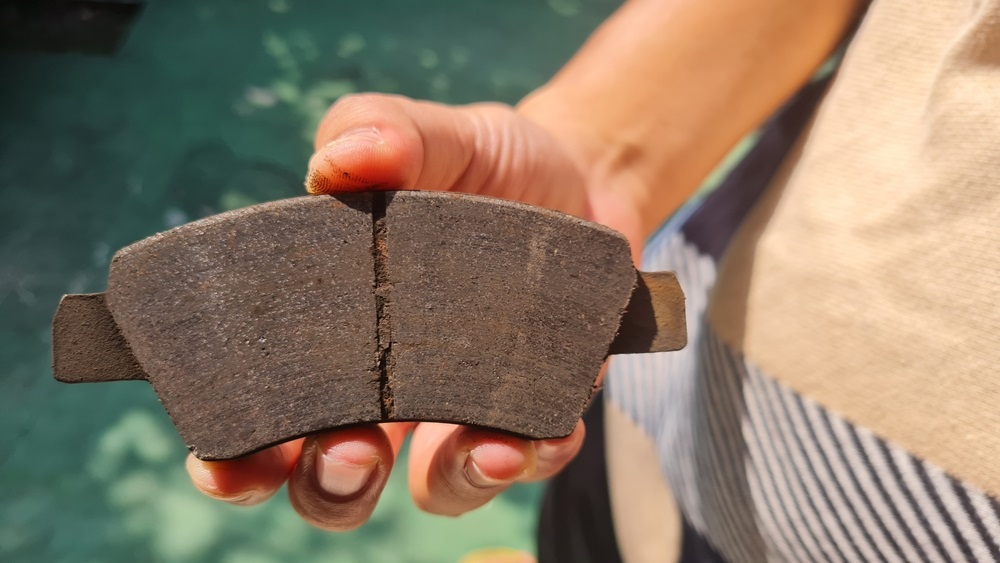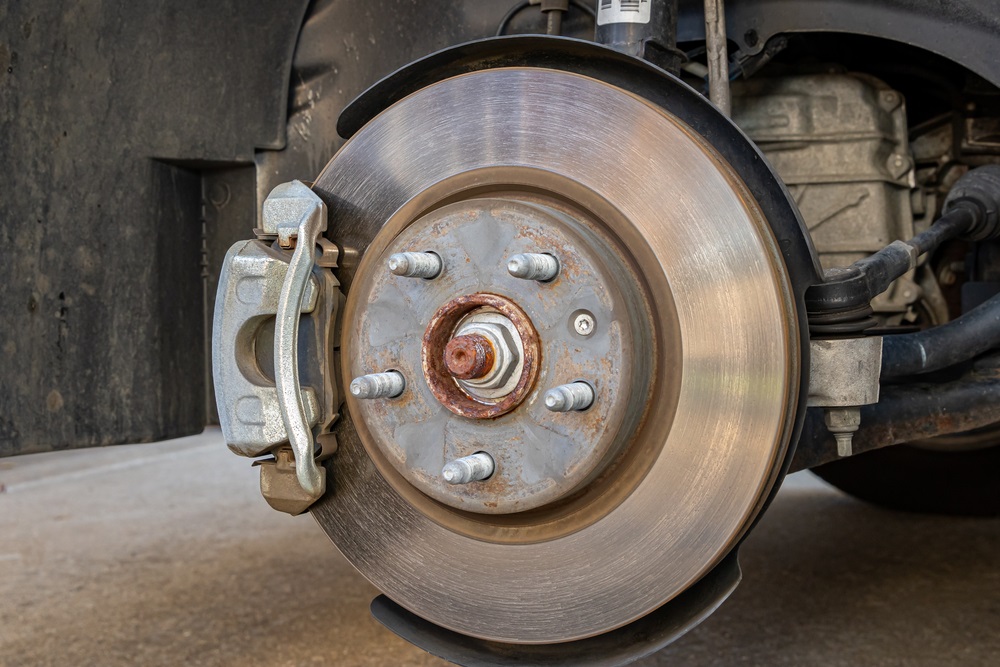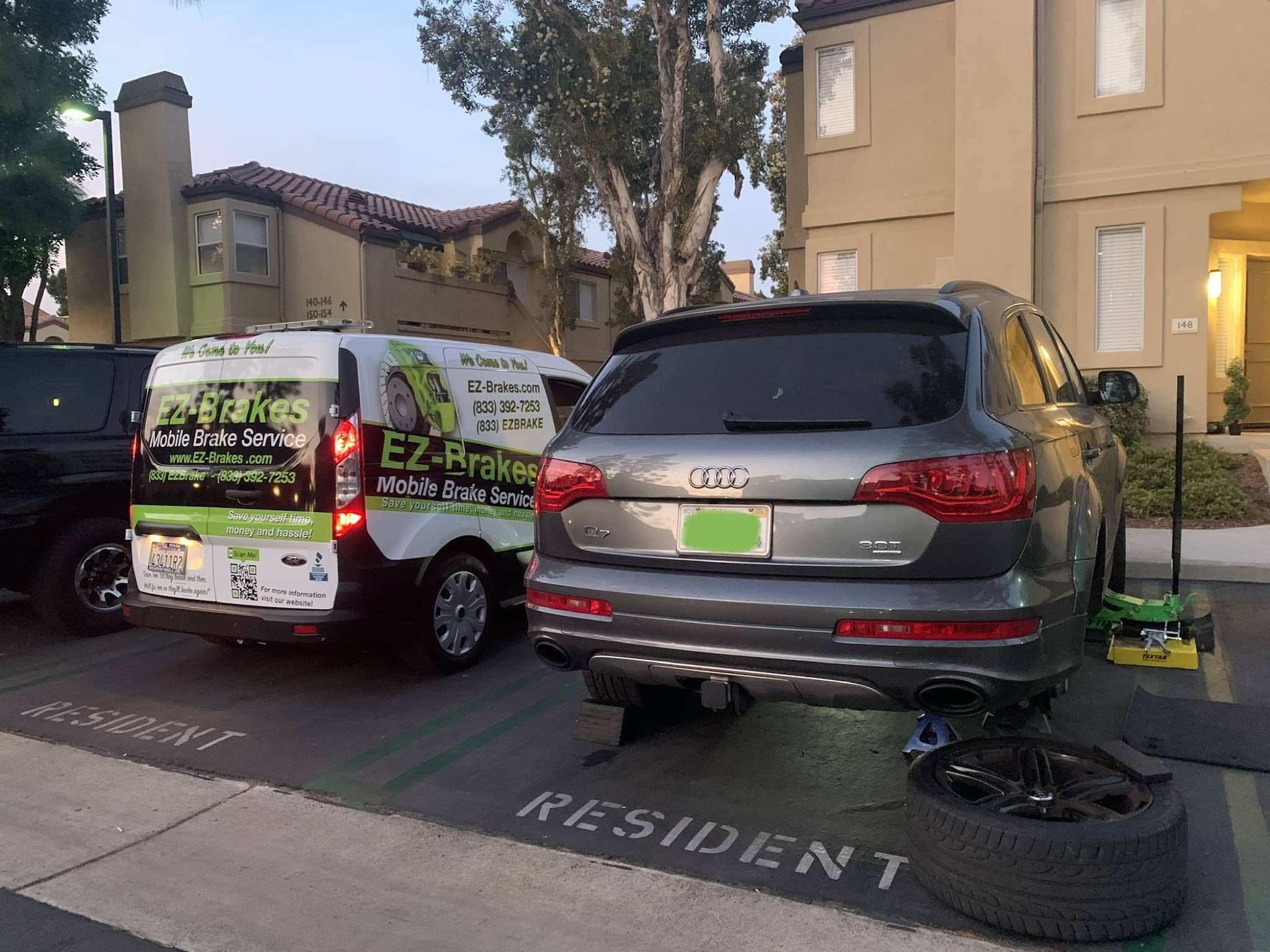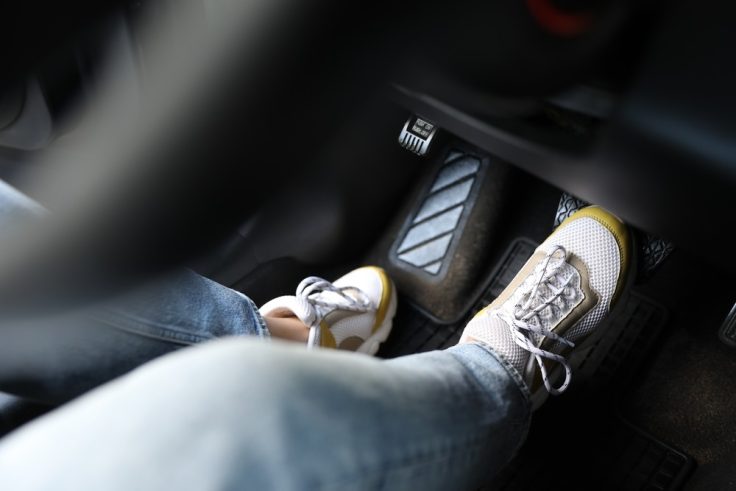Squeaky brakes aren’t just annoying—they’re trying to tell you something.
Have you ever asked yourself, “Why are my brakes squeaking?” or “Why do my brakes squeak when I’m barely stopping?” You’re not alone. Brake squealing is one of the most common complaints drivers have, especially in traffic or early in the morning. From new brakes squeaking after installation to that mysterious squeaking noise while driving but not brakes applied, understanding the causes can save you from stress—and unexpected repair bills.
At EZ-Brakes, we specialize in mobile brake service across Orange County. Here’s our expert breakdown of what causes brakes to squeak, and more importantly, how to stop brakes from squeaking—without ever stepping foot in a repair shop.
What Is Brake Squeal?
Brake squeal is the high-pitched noise created when vibration occurs between brake components.
This noise can happen when pads, rotors, or calipers rub together in a way that causes frictional resonance. Whether you’re dealing with brakes squeaking while driving, or brakes squeak when stopping slow, the root cause is usually vibration or poor contact between moving parts. While not always dangerous, it’s a warning that something in your braking system needs brake inspection.

What Causes Brakes to Squeak?
1. Worn Brake Pads
Why do brakes squeak? Often, your pads are trying to retire.
Most brake pads come with a small metal tab called a wear indicator. When the friction material wears thin, the tab scrapes against the rotor and creates a loud squeaking sound.
Why this matters:
Ignore it, and you could end up with metal-on-metal grinding—damaging your rotors and doubling your repair cost.
Signs to watch for:
• Constant squeaking noise
• Longer stopping distances
• Pads less than ¼ inch thick
At EZ-Brakes, we replace brake pads using premium ceramic or semi-metallic options, ensuring both silence and safety.
2. New Brakes Squeaking? Here’s Why
Do new brakes squeak? Unfortunately, yes—and here’s why.
It might seem strange, but brakes squeaking after new pads is a common issue. When new pads are installed, they often need a short break-in period (called “bedding”) to match the rotors properly. During this phase, you may hear squeaks, especially during light braking.
Other causes of squeaky new brakes:
• Pads weren’t properly lubricated
• Rotors were not resurfaced
• Low-quality pads were installed
• Incorrect installation or missing hardware
Why do my brakes squeak after new pads?
It usually comes down to improper installation or poor-quality components. At EZ-Brakes, we handle it right the first time—with correct bedding procedures, pro-grade parts, and a satisfaction guarantee.
3. Rust or Moisture on Rotors
Woke up to brakes squeaking while driving? It could be rust.
Overnight, especially in humid areas like coastal Orange County, your rotors can develop surface rust. When you drive in the morning, the rust is scraped off, causing brake squeaking or grinding for the first few stops.
When to worry:
If the noise continues all day, it could mean your rotors are pitted or that there’s something more serious happening.
4. Debris or Dust Lodged Between Pads and Rotors
Squeaking noise while driving but not brakes applied? It might be debris.
It’s surprisingly common for small stones, sand, or road dust to lodge between your brake pads and rotors. This debris vibrates against the components, especially when you’re not applying the brake pedal.
Typical symptoms:
• Random squeaks while cruising
• No noise during hard braking
• Sounds like metal on metal

5. Glazed Brake Pads or Rotors
If your brakes squeak when stopping slow, this could be the culprit.
Glazing happens when brake pads or rotors become overly smooth from excessive heat—common in stop-and-go traffic or from “riding” your brakes downhill. The smooth, hardened surface reduces grip and causes loud, piercing squeals during light braking.
Read More: What Are Glazed Brakes?
Warning signs:
• Squeaking under light pressure
• Low responsiveness
• Smooth, shiny rotor surfaces
How to fix:
Our techs will resurface or replace affected components and guide you on proper braking habits to prevent future glazing.
6. Poor Installation or Missing Hardware
Why do my brakes squeak even after a recent service?
In many cases, it’s not the parts—it’s the technician. When brake pads are installed without proper anti-squeal shims, lubrication, or hardware alignment, noise is practically guaranteed.
We’ve seen it all:
• Brake pads installed backward
• Loose caliper bolts
• Missing anti-rattle clips
7. Low-Quality Brake Pads
Cheap pads = noisy pads.
Budget brake pads often contain high levels of metal shavings, inconsistent compounds, and poor manufacturing standards. These materials are prone to vibrating and often result in brakes squeaking after new pads are installed.
Why quality matters:
Premium pads are designed with vibration-dampening features, like insulators and sound-absorbing shims, that dramatically reduce squealing.
How to Stop Brakes From Squeaking?
Want to know how to stop brakes from squeaking once and for all? Here’s your action plan:
- Book an inspection – Let a pro identify the true cause.
- Upgrade your pads – Use ceramic or semi-metallic for quiet, reliable braking.
- Check installation quality – Misaligned hardware causes more noise than you think.
- Lubricate properly – Caliper slides, pins, and backplates must be greased.
- Replace or resurface rotors – Especially if glazed, rusted, or warped.
- Avoid riding brakes – Learn proper braking techniques to prevent overheating.
How Do I Stop My Brakes from Squeaking?
To stop your brakes from squeaking, the first step is to identify the root cause—whether it’s worn brake pads, poor-quality materials, or lack of lubrication. In many cases, simply replacing your pads with premium ceramic or semi-metallic options and ensuring proper installation with anti-squeal shims and brake grease will eliminate the noise. If your rotors are glazed or warped, resurfacing or replacing them may be necessary to restore quiet, efficient braking.
At EZ-Brakes, we take a comprehensive approach to brake noise. Our mobile technicians perform on-site inspections, use top-grade parts, and follow exact installation procedures to prevent squeaks before they start. Whether you’re dealing with new brakes squeaking or an ongoing squeaking noise while driving, we’ve got the tools and expertise to make your drive smooth and silent again.
Is It Okay to Drive with Squeaky Brakes?
Driving with squeaky brakes might not seem like a big deal, especially if your car still stops properly. In some cases—like light surface rust or temporary moisture—the squeak is harmless and goes away after a few stops. However, persistent brake squealing can be a sign of more serious issues like worn brake pads, loose hardware, or warped rotors. Ignoring the noise could lead to reduced braking performance or more expensive repairs down the line.
More importantly, squeaky brakes may compromise your safety. The longer you drive without addressing the problem, the higher the risk of damaging essential components in your brake system.

FAQ About Brakes Squeaking
WHY ARE MY BRAKES SQUEAKING AFTER NEW PADS?
Brakes squeaking after new pads usually result from improper bedding, lack of lubrication, or poor-quality pads. Our pros ensure smooth installation and quiet results.
DO NEW BRAKES SQUEAK?
They can—but they shouldn’t for long. Do new brakes squeak? Yes, during the initial break-in period, but persistent noise is a red flag. Call EZ-Brakes if it continues.
WHY DO MY BRAKES SQUEAK WHILE DRIVING BUT NOT WHEN I BRAKE?
This often indicates debris between the pad and rotor or loose hardware vibrating while the car is in motion. It’s worth a professional inspection.
WHY DO MY BRAKES SQUEAK WHEN STOPPING SLOW?
Glazed pads or uneven wear can cause brakes to squeak when stopping slow. This is a common symptom of poor-quality pads or excessive heat buildup.
HOW DO I SCHEDULE A BRAKE SERVICE?
Visit ez-brakes or call (949) 313-2787. Pick a time, tell us your car’s details, and our mobile brake experts will meet you wherever you are.
Final Thoughts: Silence the Squeak, Drive with Confidence
Whether you’re dealing with brakes squeaking while driving, new brakes squeaking, or wondering why do brakes squeak at low speeds, one thing’s for sure—your car deserves attention. Squeaky brakes may not always be dangerous, but they’re never something to ignore.
At EZ-Brakes, we bring top-tier brake repair right to your door. No shops. No waiting. No guesswork. Just honest service, certified technicians, and results that last.
Don’t wait for that squeak to turn into a screech—book your mobile brake repair today.



